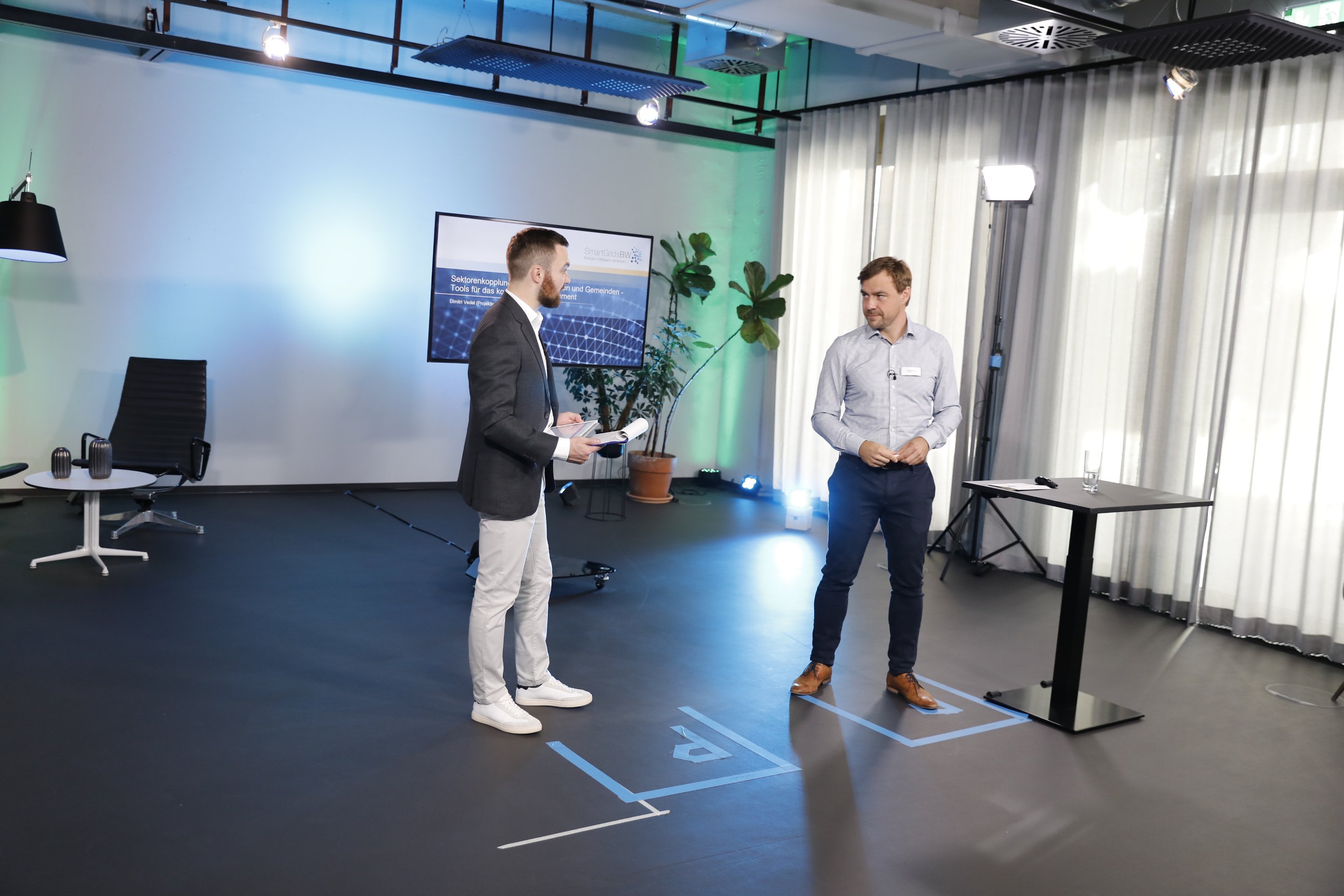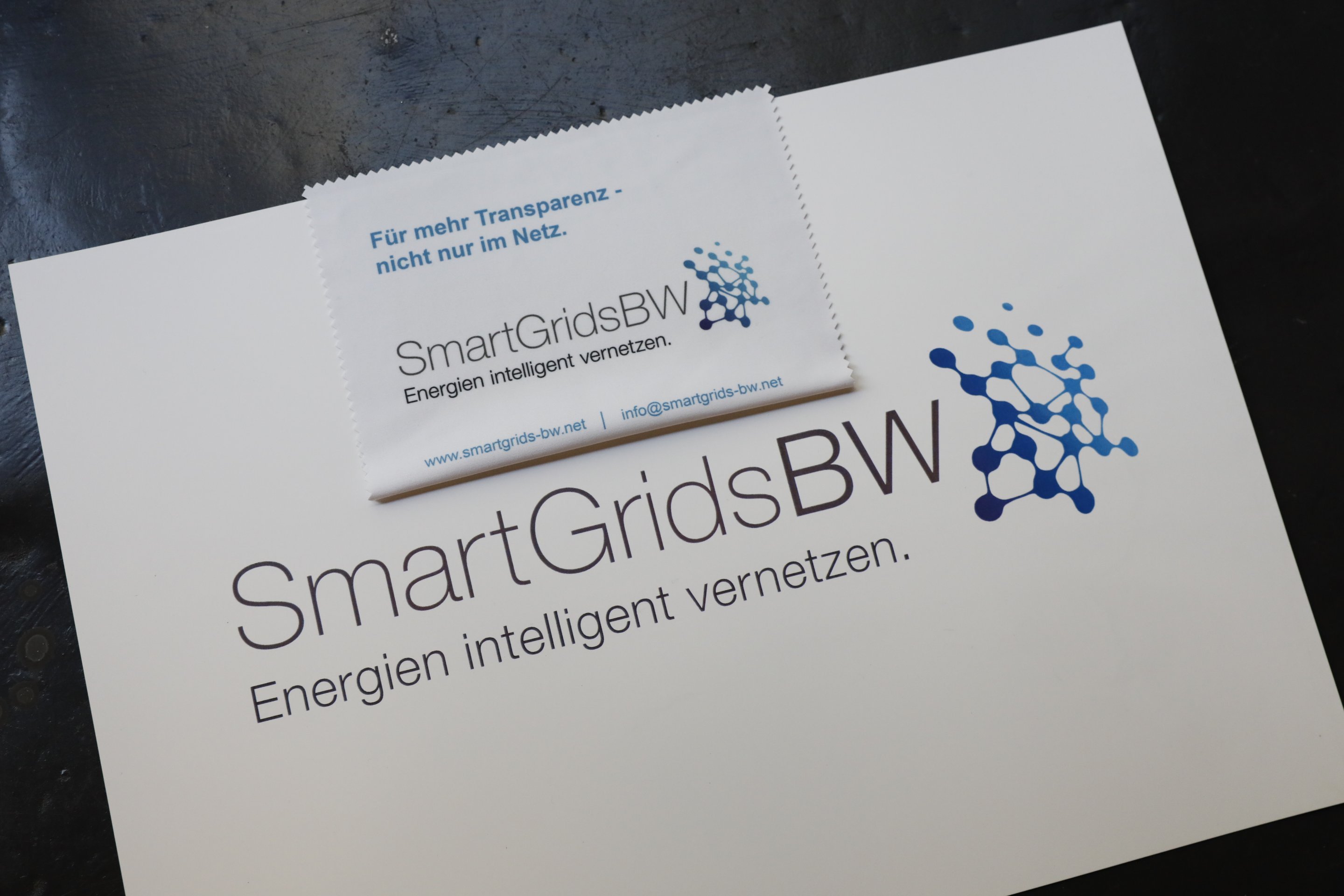CSSC LAB - CSSC Lab presented at municipality congress in Stuttgart
08-10-2021
Smart, energy-optimised neighbourhoods are essential for the success of the energy transition in Europe. Nevertheless, their implementation poses many challenges. How can the implementation of smart, energy-optimised neighbourhoods in municipalities succeed? In order to inform stakeholders about the topic, bring together stakeholders and leverage synergies, the "Smart Neighbourhoods" competence centre of the Smart Grids Platform Baden-Württemberg e. V. (SmartGridsBW) organised a hybrid congress on September 23th, 2021.
Smart neighbourhoods and sector coupling
Smart neighbourhoods roll the energy transition out to municipalities and make an essential contribution to achieving climate targets as part of a long-term decarbonisation strategy. At the same time, sector coupling allows for low-emission neighbourhood design. The largest share of Germany's total energy consumption is found in the heating sector. It is important to connect this sector to the electricity-driven energy transition by means of sector coupling. Smart neighbourhoods make a fundamental contribution to this, as they link the areas of electricity, gas, heat and mobility with minimised friction losses. At the same time, smart, energy-optimised neighbourhoods fulfil an important communicative function, as they make the intelligent networking of renewable energy systems and connected technologies tangible for citizens and thus demonstrate energy transition in practice.

Dimitri Vedel, Project Manager at the Lake Constance Foundation, had the opportunity to present the Interreg DTP CSSCLab project to large audience of nearly 200 participants. CSSCLab offers a concrete strategy and measures municipalities can implement. The CSSC Model Solutions have the advantage of allowing initial access, but at the same time making new possibilities visible. In any case, the focus is always on finding a "tailor-made solution" for the municipal context. Municipalities benefit from intercommunal exchange, good networks, support in finding the optimal solutions as well as further training. All these experiences lead to a commitment to optimization at CSSCLab. Acceptance is crucial, but technical requirements, good scalability and manageable costs were also among the factors that always have to be considered. And of course, the whole thing has to have an impact on energy efficiency.

The whole congress was accompanied by a liveblogger who summarized what was said in text and pictures. The liveblog of the event is available here (in German).
SmartGridsBW sees itself as a cross-sector and cross-association initiator, moderator and integrator in the increasingly important linking of energy grids with the accompanying communication infrastructure. However, when it was launched in 2021, SmartGridsBW was initially characterized by theinformal cooperation between numerous actors in the energy industry environment totalling 80 members. This cooperation forms an important element for the further development and integration of strengths and competencies in the effort to implement the energy transition efficiently and quickly - in Baden-Württemberg and beyond.
For further information:
Smart Grids-Plattform Baden-Württemberg e.V.
Dietmar Miller
Tel: +49 711 9757 4995
